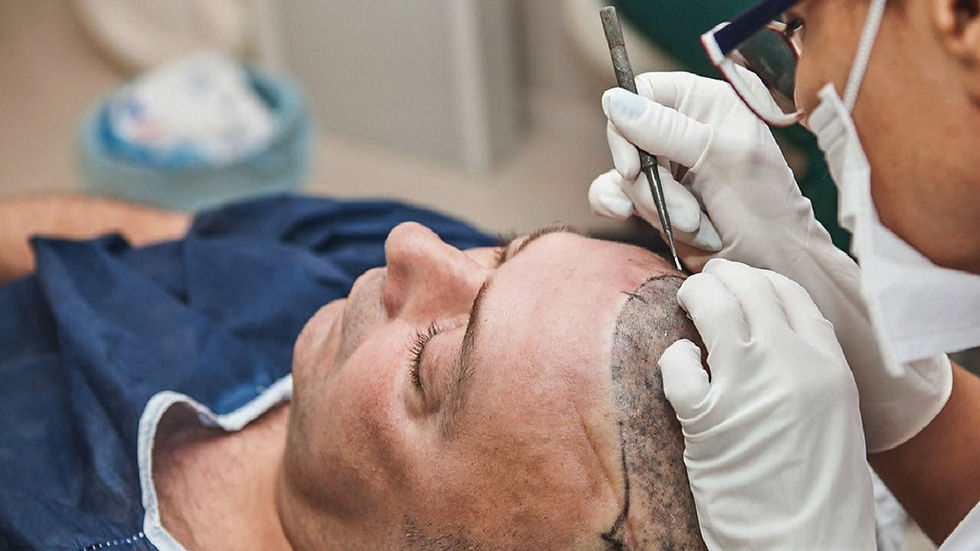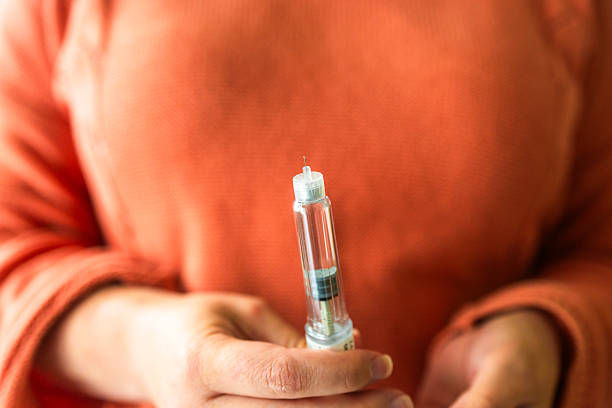Long-Term Care for Your Dubai Hair Transplant
- acerstone01
- Apr 22
- 5 min read
After undergoing a hair transplant in Dubai, the journey doesn't end with the procedure. Long-term care is vital to ensuring that the transplanted hair grows successfully and that you maintain the natural, fuller look you've worked so hard for. The health of your hair and scalp post-transplant largely depends on the care you provide in the months and years that follow. In this article, we’ll explore the essential long-term care tips that will help you protect and nurture your newly transplanted hair.
1. Follow Your Surgeon’s Aftercare Instructions
One of the most important things to do after your hair transplant is to follow the post-procedure instructions provided by your surgeon. These instructions are tailored specifically to your individual case and will guide you through the initial healing process.
Shampooing and Washing: In the early stages after your hair transplant, it’s crucial to use a mild, gentle shampoo recommended by your surgeon. Avoid scrubbing or rubbing your scalp during this time to prevent dislodging the newly transplanted follicles.
Avoid Touching the Transplanted Area: Refrain from touching or scratching the transplant area. This will help prevent infections and minimize any risk of disturbing the healing grafts.
Adhering to the surgeon’s aftercare plan helps set the foundation for the long-term success of your transplant.

2. Maintain Scalp Health with Proper Hygiene
Maintaining a clean and healthy scalp is essential for supporting the growth of transplanted hair. Poor scalp hygiene can lead to complications such as infections or clogged pores, both of which can negatively affect the success of your transplant.
Keep Your Scalp Clean: As your scalp heals, regular washing is necessary to remove any dirt, oil, or dead skin cells that could interfere with hair growth. Use the recommended products to prevent irritation and to nourish the skin.
Hydrate Your Scalp: Consider using scalp moisturizers or oils suggested by your clinic to keep your scalp hydrated. Dryness or itching can be a sign of poor scalp health, which can hinder the growth of new hair follicles.
By maintaining a clean, hydrated scalp, you create an environment that supports optimal hair growth and reduces the chances of complications.
3. Protect Your Scalp from the Sun
Living in Dubai means dealing with intense sun exposure, which can be harmful to your skin, especially following a hair transplant. In the long term, protecting your scalp from direct sunlight is essential for the health of your transplanted hair.
Wear a Hat: To protect the sensitive transplant area, wear a wide-brimmed hat or a cap when you’re outdoors. This will help shield your scalp from UV rays and prevent irritation.
Apply Sunscreen: If your transplant area is exposed, apply a gentle, non-comedogenic sunscreen to prevent sunburn, which could damage the hair follicles and delay the healing process.
Consistent protection from the sun reduces the risk of damage and helps maintain the overall health of your scalp and transplanted hair.
4. Be Mindful of Hair Styling
Once your transplanted hair has begun to grow, you may be eager to style it. While it’s important to enjoy the results, you should be cautious when it comes to hair styling techniques that could harm the hair or scalp.
Avoid Harsh Hair Treatments: Chemical treatments such as perms, coloring, or straightening should be avoided for at least the first six months after your transplant. These treatments can weaken the hair and irritate the scalp, which can negatively affect the growth of your new hair.
Use Gentle Hair Tools: When combing or styling your hair, opt for wide-tooth combs and soft bristle brushes to prevent breakage and minimize stress on the scalp.
By being gentle with your hair during the healing phase, you allow the transplanted follicles to flourish and grow in a natural direction.
5. Regular Follow-Up Appointments
After your hair transplant, it’s important to keep in touch with your clinic through regular follow-up appointments. These check-ups allow your surgeon to monitor the progress of your hair growth, ensure that the transplant is healing well, and address any concerns you might have.
Progress Monitoring: During your follow-up visits, your surgeon will check for any signs of complications such as infections or unusual shedding. This allows for early intervention if necessary.
Adjustments to Aftercare: Your surgeon may adjust your aftercare routine based on how well your scalp is healing, offering new recommendations to optimize hair growth.
Regular follow-up appointments provide peace of mind and help ensure that everything is progressing as expected.
6. Be Patient During the Growth Process
Patience is key after a hair transplant. The results don’t appear overnight, and the healing process can take several months to a year. During this time, you may experience temporary shedding of the transplanted hairs, which is normal.
Understand Shedding: After the transplant, it’s common for the hair to fall out within the first few weeks. This is known as "shock loss," and it doesn’t mean your transplant was unsuccessful. New hair growth typically begins after the shedding phase, but it can take up to six months for visible results.
Stay Positive: Understand that full results may take up to a year to materialize. The patience you invest during the growth process will eventually pay off when you see fuller, natural-looking hair.
By keeping realistic expectations and maintaining patience, you’ll be more prepared for the gradual growth of your hair.
7. Support Hair Growth with Proper Nutrition
Your diet plays a crucial role in the long-term health of your hair. Eating a balanced, nutrient-rich diet ensures that your body has the vitamins and minerals necessary for hair growth and overall well-being.
Incorporate Hair-Healthy Foods: Foods rich in vitamins A, C, E, zinc, and biotin can help support healthy hair follicles. Omega-3 fatty acids, found in foods like salmon, chia seeds, and walnuts, also promote hair health.
Hydration is Key: Drinking plenty of water is vital to maintain the health of your scalp and hair. Hydrated hair follicles grow better and faster than those that are dry or dehydrated.
By fueling your body with the right nutrients, you enhance the health of your hair and support the transplanted follicles.
8. Manage Stress
Stress can have a significant impact on hair growth, and it’s important to manage stress levels for the long-term success of your hair transplant. Stress can lead to conditions like telogen effluvium, a temporary hair loss condition, which can affect both transplanted and natural hair.
Practice Stress-Reduction Techniques: Meditation, yoga, regular exercise, and other stress-relief techniques can help you manage stress and promote overall hair health.
Prioritize Sleep: Quality sleep is essential for your body’s recovery, including hair regrowth. Aim for seven to eight hours of restful sleep each night to support optimal hair growth.
Reducing stress and promoting relaxation helps your body focus on recovery, including the healing of your transplanted hair.
9. Avoid Smoking and Excessive Alcohol
Smoking and excessive alcohol consumption can impede the healing process and hinder the growth of your transplanted hair. Both habits can reduce circulation to the scalp, making it harder for hair follicles to receive the nutrients they need for healthy growth.
Quit Smoking: If you smoke, consider quitting or reducing your smoking habits before and after your hair transplant. Smoking can restrict blood flow to the scalp, which affects hair follicle health.
Limit Alcohol Intake: Excessive drinking can lead to dehydration, which negatively impacts scalp health and hair growth. Limit your alcohol consumption to maintain optimal results.
By eliminating harmful habits, you give your body the best chance for hair regrowth and overall recovery.
Conclusion
Long-term care after a hair transplant in Dubai is vital to ensuring that you maintain healthy, natural-looking hair. By following the aftercare instructions, protecting your scalp from the sun, and adopting a healthy lifestyle, you can optimize the results of your transplant. Remember, patience is key—hair growth is a gradual process, but with the right care, you’ll soon see the full benefits of your investment. Take the necessary steps to nurture your scalp and hair, and enjoy the confidence that comes with a successful hair transplant.




Comments